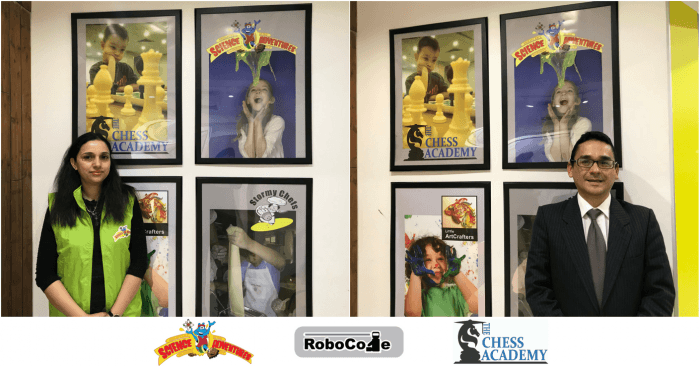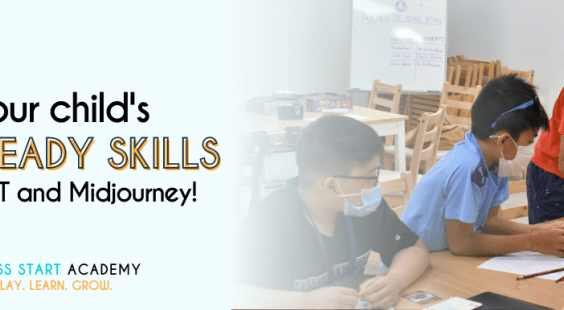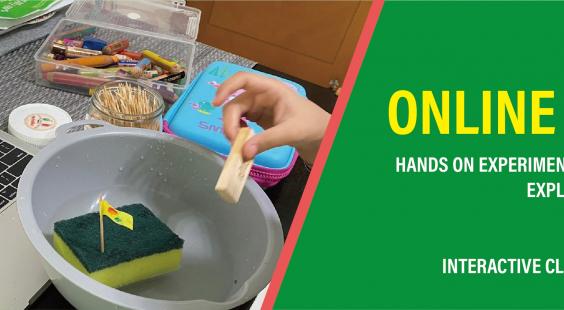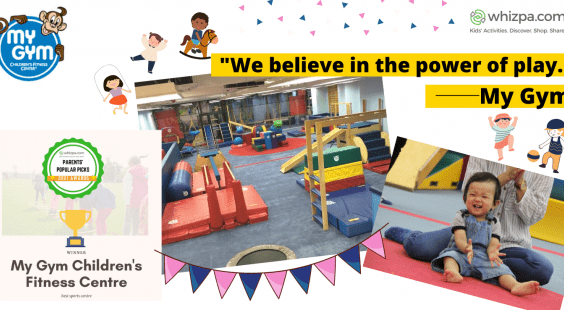
ActiveKids’ Flagship Programs - Science Adventures, RoboCode & The Chess Academy!
Previously in our Feature Interview with Grace So, Founder of ActiveKids, we have introduced the hands-on approach that is used in teaching ActiveKids programs. Among their six premium afterschool programs, this time we would like to focus on Science Adventures, RoboCode and The Chess Academy.
Science Adventures & RoboCode
【Interview with Sarika Sharma, ActiveKids’ Science and Robotics Teacher】
Science Adventures, ActiveKids’ first after-school program, is a US-based science education program. As a thematic science program, Science Adventures provides children with a full spectrum of science learning. The program involves diverse science disciplines, including physics, chemistry, biology, earth, space, life and material science. “Through our fun and interactive lessons, we aim to get students to be truly excited about science and also to increase the overall science literacy among them,” said Sarika Sharma, ActiveKids’ Science Adventures teacher.
Sarika also teaches the RoboCode program. RoboCode is a program originally developed in Japan. Different from Science Adventures, in which the program focuses on developing critical thinking skills, RoboCode has more to do with the logical and creative thinking skills. The program helps students develop skills in understanding logic, coding and building robots.
Both Science Adventures and RoboCode lessons involve hands-on experiments and take-home projects. Classes begin with an introduction to the topic. Students would then do a hands-on experiment together to learn various scientific concepts. Sarika says “learning by doing is what we believe the best way to get children engaged. The hands-on approach allows students to develop a science model or build a simple robot in class while having lots of fun. Science is all about prediction, exploring and discovering answers to questions. We always encourage students to ask relevant questions throughout the class while we are working on the models and robots.” Sarika also stresses the importance of having continual learning at home in order to cultivate children’s interest in science and robotics. “After each lesson, students would bring home with them the projects they made in class. Parents can encourage their children to talk about the projects and share the science knowledge behind them. For RoboCode, even if they do not bring the robot home, students can be encouraged to use the logical thinking skills they learn to understand how things work round us in our daily lives.”
Sarika joined ActiveKids two years ago. As a registered teacher in Hong Kong, she finds that the Science Adventures and RoboCode programs are very different from the science learning in schools. “We have had many instances where students are not ready to leave the classroom when the class is finished. They want to continue with the topic and work on the projects after class - I’m very happy to see this happening! Teaching at ActiveKids is definitely a rewarding experience for me. I enjoy the interaction with students from different age groups and different schools - both local and international - all over Hong Kong” says Sarika.
The Chess Academy
【Interview with Coach International Master Juan Armando Röhl Montes, ActiveKids’ Chess Teacher】
The Chess Academy, known as the number one chess program in Hong Kong, is the pioneer of children’s chess programs in Hong Kong. In operation for the last 12 years, The Chess Academy program not only teaches children to play chess, but also organizes small and large scale tournaments to offer a comprehensive chess experience for children. The program boasts the highest ranking of coaches in Hong Kong. Juan Armando Röhl Montes, who is an International Master (IM) of Chess, joined The Chess Academy in November last year.
Prior to joining ActiveKids, Juan was a chess coach in Venezuela and also taught chess classes online. “I began playing chess when I was 13 years old and I learnt it from the brother of my mother’s best friend. My journey as a chess player has been almost 31 years. I’ve participated in Chess Olympiads 6 times and in over hundreds of local, national and international tournaments.”
The Chess Academy is a progressive program in which students are divided into three levels - beginner, intermediate and advanced. Students have the opportunity to be promoted to the next level once a control test is applied. Instructors would determine the test results together with other factors to consider if the students can advance to the next level. Juan points out that “chess is an activity that develops a lot of intellectual processes. It is proven that playing chess is very beneficial to children. It can stimulate their logical thinking skills and the capacity for concentration. Their ability to solve problems as well as their analytical capacity can also be enhanced through playing chess. These are really the important elements for children to be successful individuals especially in today’s complex and competitive world.”
A typical lesson at The Chess Academy is normally an hour long, and consists of theoretical and practical activities. Students learn to play chess by doing, thinking, solving and analyzing. “The progress of each student is evaluated so that we can identify those who are especially talented. We would then conduct customized training sessions for the talented students to prepare them to be successful chess players” says Juan.
The Chess Academy has nurtured many high performers and Champions in the Lower, Upper Primary, as well as secondary sections in Hong Kong and Asian tournaments. Some of our high caliber instructors have also been on the European National Teams and have even coached numerous FIDE Masters (FM), and Women International Masters (WIM).
In addition to chess classes, The Chess Academy is also very experienced in organizing tournaments. They run at least six major tournaments throughout the year. “Our tournaments are open to the public. Children who want to prove their chess knowledge and skills in official competitions are encouraged to participate in our tournaments. It is also a social event for children to make some new friends!” says Juan.
Chess in Hong Kong is becoming a more popular extracurricular activity. Juan hopes to see the inclusion of chess in the teaching material of Hong Kong schools. “In the European community, it is very common that chess is used as a material in schools. In my opinion, if children wish to be good chess players, they first need to love chess a lot. An early exposure to chess can not only boost their brain power, but also promote the love of chess in our children.”
To find out more about ActiveKids programs or to share the experiences you’ve had with them, please go to: https://whizpa.com/search-results?search=activekids&field_region=
Discounted class package is also available on Whizpa e-shop: Robotics / Science / Chess








